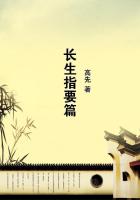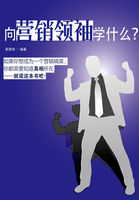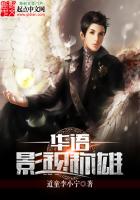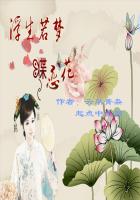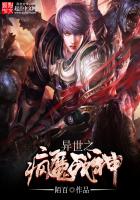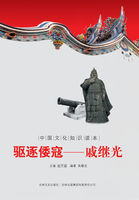THE ROMAN EMPIRE
HOW THE REPUBLIC OF ROME AFTER CENTURIES OF UNREST AND REVOLUTION BECAME AN EMPIRE WHEN the Roman armies returned from these many victorious campaigns, they were received with great jubilation.
Alas and alack! this sudden glory did not make the country any happier. On the contrary. The endless campaigns had ruined the farmers who had been obliged to do the hard work of Empire making. It had placed too much power in the hands of the successful generals (and their private friends) who had used the war as an excuse for wholesale robbery.
The old Roman Republic had been proud of the simplicity which had characterised the lives of her famous men. The new Republic felt ashamed of the shabby coats and the high principles which had been fashionable in the days of its grandfathers.
It became a land of rich people ruled by rich people for the benefit of rich people. As such it was doomed to disastrous failure, as I shall now tell you.
Within less than a century and a half. Rome had become the mistress of practically all the land around the Mediterranean.
In those early days of history a prisoner of war lost his freedom and became a slave. The Roman regarded war as a very serious business and he showed no mercy to a conquered foe. After the fall of Carthage, the Carthaginian women and children were sold into bondage together with their own slaves.
And a like fate awaited the obstinate inhabitants of Greece and Macedonia and Spain and Syria when they dared to revolt against the Roman power.
Two thousand years ago a slave was merely a piece of machinery. Nowadays a rich man invests his money in factories.
The rich people of Rome (senators, generals and war- profiteers) invested theirs in land and in slaves. The land they bought or took in the newly-acquired provinces. The slaves they bought in open market wherever they happened to be cheapest. During most of the third and second centuries before Christ there was a plentiful supply, and as a result the landowners worked their slaves until they dropped dead in their tracks, when they bought new ones at the nearest bargain-counter of Corinthian or Carthaginian captives.
And now behold the fate of the freeborn farmer!
He had done his duty toward Rome and he had fought her battles without complaint. But when he came home after ten, fifteen or twenty years, his lands were covered with weeds and his family had been ruined. But he was a strong man and willing to begin life anew. He sowed and planted and waited for the harvest. He carried his grain to the market together with his cattle and his poultry, to find that the large landowners who worked their estates with slaves could underbid him all along the line. For a couple of years he tried to hold his own.
Then he gave up in despair. He left the country and he went to the nearest city. In the city he was as hungry as he had been before on the land. But he shared his misery with thousands of other disinherited beings. They crouched together in filthy hovels in the suburbs of the large cities. They were apt to get sick and die from terrible epidemics. They were all profoundly discontented. They had fought for their country and this was their reward. They were always willing to listen to those plausible spell-binders who gather around a public grievance like so many hungry vultures, and soon they became a grave menace to the safety of the state.
But the class of the newly-rich shrugged its shoulders.
"We have our army and our policemen," they argued, "they will keep the mob in order." And they hid themselves behind the high walls of their pleasant villas and cultivated their gardens and read the poems of a certain Homer which a Greek slave had just translated into very pleasing Latin hexameters.
In a few families however the old tradition of unselfish service to the Commonwealth continued. Cornelia, the daughter of Scipio Africanus, had been married to a Roman by the name of Gracchus. She had two sons, Tiberius and Gaius.
When the boys grew up they entered politics and tried to bring about certain much-needed reforms. A census had shown that most of the land of the Italian peninsula was owned by two thousand noble families. Tiberius Gracchus, having been elected a Tribune, tried to help the freemen. He revived two ancient laws which restricted the number of acres which a single owner might possess. In this way he hoped to revive the valuable old class of small and independent freeholders. The newly-rich called him a robber and an enemy of the state.
There were street riots. A party of thugs was hired to kill the popular Tribune. Tiberius Gracchus was attacked when he entered the assembly and was beaten to death. Ten years later his brother Gaius tried the experiment of reforming a nation against the expressed wishes of a strong privileged class. He passed a "poor law" which was meant to help the destitute farmers. Eventually it made the greater part of the Roman citizens into professional beggars.
He established colonies of destitute people in distant parts of the empire, but these settlements failed to attract the right sort of people. Before Gaius Gracchus could do more harm he too was murdered and his followers were either killed or exiled.
The first two reformers had been gentlemen. The two who came after were of a very different stamp. They were professional soldiers. One was called Marius. The name of the other was Sulla. Both enjoyed a large personal following.
Sulla was the leader of the landowners. Marius, the victor in a great battle at the foot of the Alps when the Teutons and the Cimbri had been annihilated, was the popular hero of the disinherited freemen.
Now it happened in the year 88 B.C. that the Senate of Rome was greatly disturbed by rumours that came from Asia.


